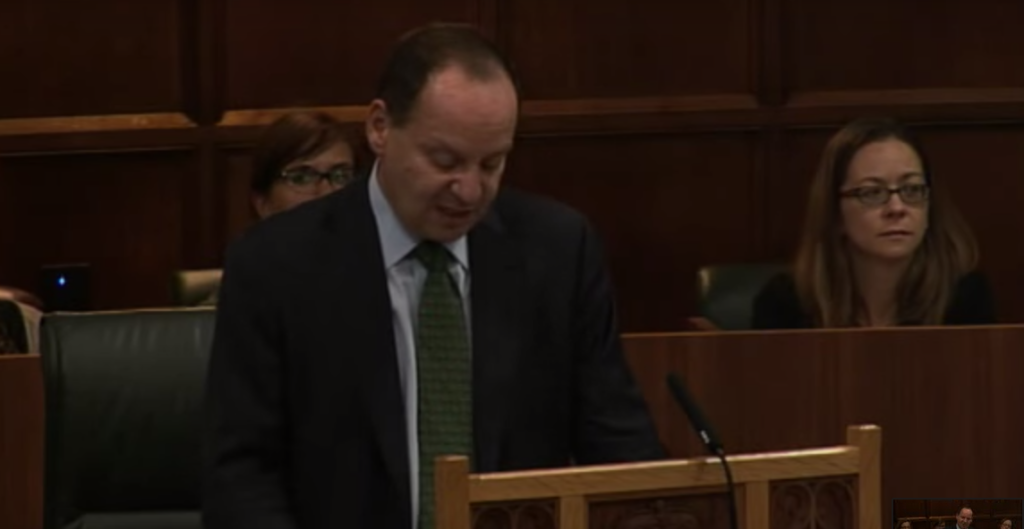
High-profile lawyer Philippe Sands QC suggests current scientific evidence on climate change goes well beyond the standard burden of legal proof, while speaking to an audience of revered judges and lawyers at an international law and climate change conference in London this September.
“One of the most important things an International Court could do in my view, it is probably the single most important thing it could do, is to settle the scientific dispute,” says the lawyer.
In his lecture, Professor Sands argues that an advisory opinion should be requested from the International Court of Justice (ICJ) or the International Tribunal on the Law of Seas (ITLOS) on climate change. On one hand, the former could clarify whether avoiding the two degrees Celsius warming accepted by scientists is a legal obligation under customary international law, while the latter could identify the responsibilities of countries in mitigating climate change.
As the official perspective of the highest courts on international law, an advisory opinion could squash climate skeptics, encourage international negotiations on climate change mitigation, and guide legal cases clarifying international issues related to climate change.
Advisory opinions can be only obtained through requests from Member States. This request can take one of two shapes: through a resolution from either the UN General Assembly, Security Council or designated UN bodies, or alternatively and less likely, through a legal case that has been brought to the international courts by one country against another. Additionally, the latter option is in need of a clarification through an advisory opinion, and due to the contentious nature of this method, Professor Sands encourages Member States to pass a resolution in the General Assembly, which would require at a minimum, an acquiescence from the majority of the world.
Even if the process for getting an advisory opinion were to start immediately, unfortunately a ruling would not be available until 2018 at the earliest.
“Philipe Sands QC the UK Supreme Court on September 17, 2015 speaking about climate change and the rule of law.”
In 2012, Professor Sands heavily critiqued a General Assembly resolution requesting an advisory opinion by the ICJ, introduced by the Republic of Palau. Professor Sands asked: What are the obligations under international law of a State for ensuring that activities under its jurisdiction or control that emit greenhouse gases do not cause, or substantially contribute to, serious damage to another State or States?
At that point, Professor Sands explained an advisory opinion could potentially serve as a discordant addition to the climate change discourse. Due to a lack of global consensus on the factors contributing to and the severity of climate change, the request risked an unintended opinion impeding the progress on the climate change negotiations. Much to the chagrin of Palau, and to the contentment of Professor Sands, the resolution was immediately dissolved.
The Republic of Palau and other small island nations have continued the push to engage international courts in climate change action with the understanding that a ruling would cause profound impacts on public perception and the negotiations. An advisory opinion by the ICJ last year for example, deemed some whaling in Japan unlawful. Within one day, a prominent Japanese company announced the removal of associated products from online stores and asked merchants to cancel sales of the products immediately.
To close, Professor Sands referenced a quote from Lord Atkin, a former judge at the UK Supreme Court where the conference was held, “amidst the clash of arms, the laws are not silent,” adding, “in our world amidst the warming of the atmosphere, and the melting of the ice, and the rising of the seas, the international courts shall not be silent.”
———————————————
The findings from the conference will be included in the final issue of the Journal of Environmental Law this year. The conference on climate change and adjudication was hosted by King’s College London, with support from The UK Supreme Court, HM Government, the Journal of Environmental Law, the Asian Development bank and the UNEP.
